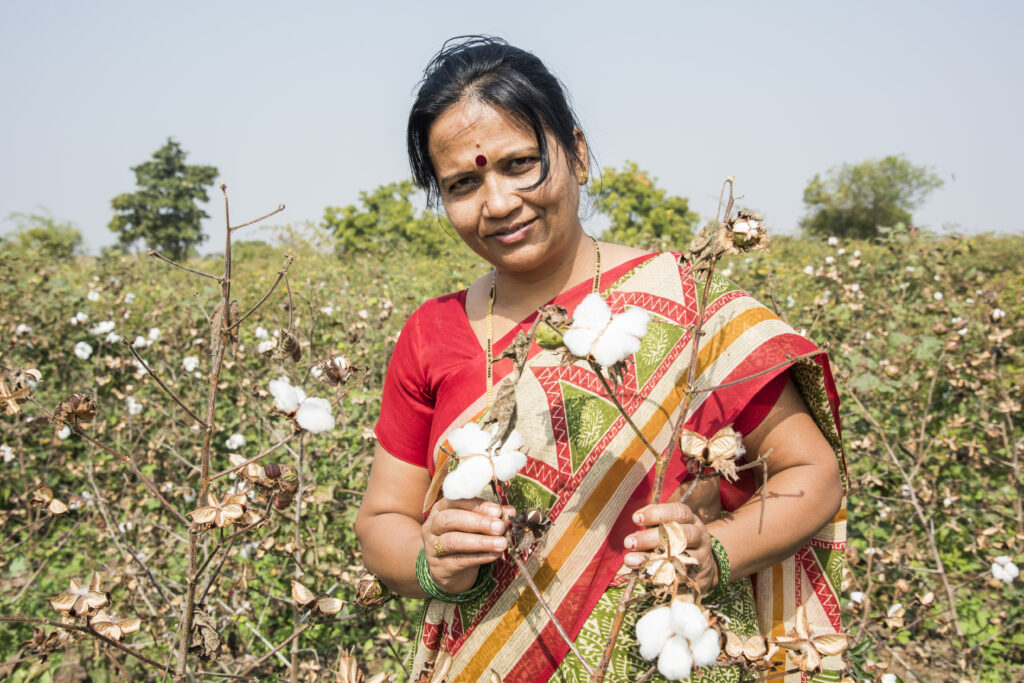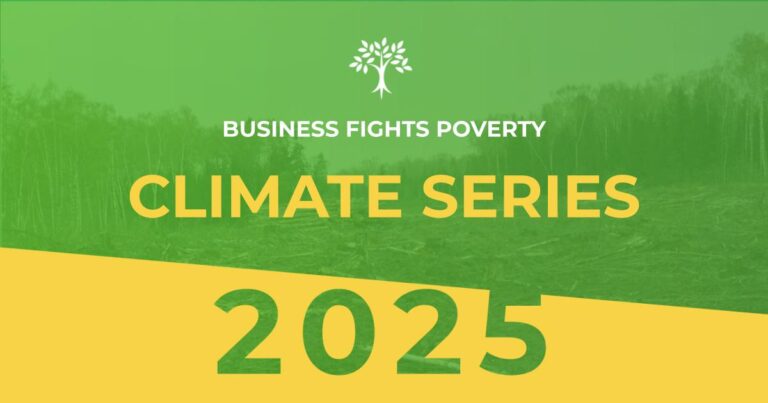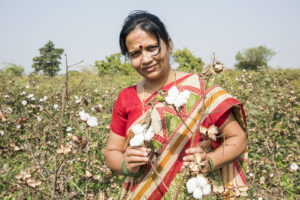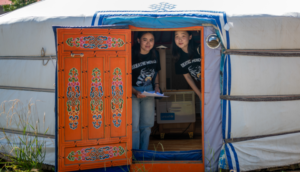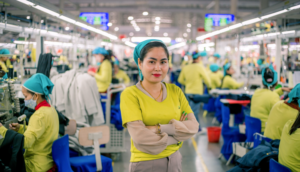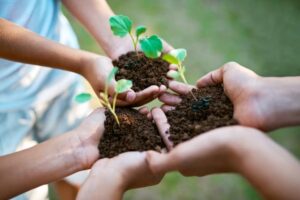For millions of smallholder cotton farmers across the globe, prosperity is not just about higher incomes today, but about securing sustainable livelihoods for generations to come. Key to achieving this goal is ensuring that farmers become more resilient and adaptable to the changing climate, and ultimately, have the ability to deliver the best raw materials now and into the future.
As Business Fights Poverty brings together leaders to explore how to drive inclusive economic prosperity, three interconnected themes are vital: traceability, climate resilience, and supply chains.
The demand for transparency has never been greater. Consumers, investors, and regulators alike want to know exactly where products come from and how they’re made, from the clothes we wear to the technology we use. As a result, brands are under mounting pressure to demonstrate the ethical and environmental supply chain practices.
For farmers, this means traceability is not just about compliance, but a powerful growth opportunity. By being part of a transparent supply chain, farmers can position themselves as the preferred partners for global brands, build lasting commercial relationships, and become the ‘go-to’ source for responsibly produced raw materials.
That’s why we built TraceBale with farmers at its heart. Our aim is to help turn traceability into real economic value, linking farmers to markets that reward sustainable practices. This strengthens famers’ role within global supply chains, and supports more resilient, prosperous livelihoods. In short, traceability helps ensure farmers are not invisible participants at the base of global supply chains, but valued contributors to sustainability and prosperity.
Climate change is no longer a distant threat for cotton farmers: it is their daily reality. Erratic rainfall, rising temperatures, and degraded soils are undermining productivity and livelihoods. If prosperity is to be a meaningful long term goal for farmers, they must be resilient to these shocks.
From teaching organic soil management techniques, to promoting water-efficient irrigation, to diversifying income sources through intercropping, it’s vital that farmers are equipped with the knowledge and resources required. This is not only to reduce their vulnerability to an ever-changing climate but also ensure their farming practices are more resilient.
In India, Pakistan, Bangladesh, and Egypt, we support women-led farmer groups to adopt regenerative techniques, helping not only to improve yields but also to strengthen household resilience. These practices reduce dependency on expensive chemical inputs, improve household food security, and generate knowledge that is passed from one generation to the next.
Resilience is also about mindset. By fostering networks of farmers who share experiences, and by equipping them with digital tools for weather forecasting and financial planning, we build confidence that prosperity is possible, even in uncertain times.
Cotton is the world’s most widely used natural fibre, yet too often, smallholder farmers, the very foundation of the cotton industry, remain disconnected from the value they help create. This gap must be bridged. CottonConnect has found the best method of doing this is linking farmers directly with brands committed to sustainability. This helps ensure that the farmers’ efforts to adopt traceable and climate-resilient practices translate into tangible economic benefits.
Our partnerships extend prosperity beyond farms – strengthening local economies, promoting gender equity, and supporting long term business value for all stakeholders.
Economic prosperity is not a single outcome or moment; it is a journey. For cotton farmers, it means moving from surviving harvest to harvest, to building sustainable livelihoods that can withstand environmental, social, and market challenges.
As the Business Fights Poverty community convenes to explore pathways to prosperity, the message is clear: the future of economic prosperity depends on empowering the foundation of global supply chains. When farmers prosper, businesses prosper, and we all move closer to a more sustainable future.
